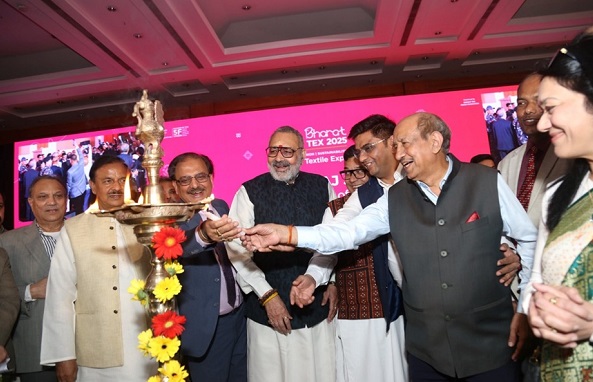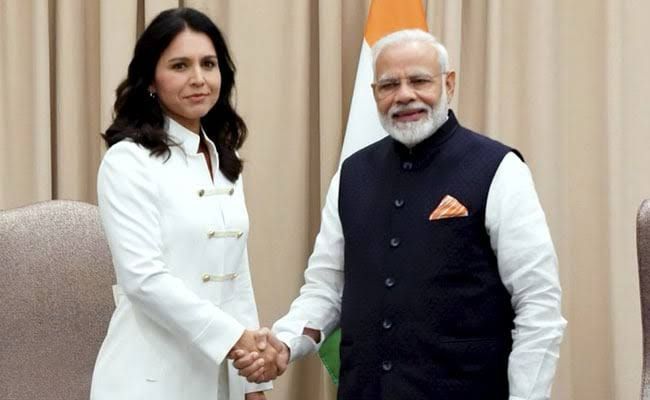Worried that Momo challenge group will be behind you? Here’s what you can do
Fri 17 Aug 2018, 16:48:01

Momo challenge, even those who are barely active on social media are aware of this new creepy dare game that has been doing the rounds on the internet, and is also entering the Indian territory.
“I have a challenge for you,” is how it all began. Tamil, a software engineer in Chennai, was aware of this new game and she was one of the many who shared awareness messages about the challenge on the social media as well. However, she didn't know what was kept in store for her. “I was shocked when I received a message from an unknown number on WhatsApp,” says Tamil, who blocked it immediately. However, she is not the only one in Chennai to receive this message.
Chandini* a student deleted her WhatsApp account and is now using a basic mobile after she received an invite to play the dare game. Another student Shruthi* claimed that only women receive such messages and suggested that people should avoid keeping a display picture on WhatsApp to stay safe. On 12th August, Tamil received her first message. She was chatting with her friend who had sent a Momo challenge screenshot on a WhatsApp group. Minutes after that conversation, Tamil became the next target of the ‘hackers’.
But, is the Momo challenge real? Here’s how things turned out when we approached more people who claimed that momo texted them.
Tamil was so naïve to understand that her friends played a prank on her in the name of Momo. “I was initially shocked but I later learned from my friend that it is a hoax as anyone can generate a fake
number to send out such messages,” revealed Sudhakar, Tamil’s friend.
‘Text now - Free US Phone Number’ is a popularly used play store app, which lets users generate a number, beginning with the US’ dialing code ‘+1’. Once the number is generated, one can create a
WhatsApp account. “A lot of people use this app and register on social media platforms. My friends and I used this app and created a fake account on WhatsApp to send texts to people. We change our display picture to the creepy momo figure,” says Sudhakar.
Sudhakar and his friends used this app to prank others and eventually people started posting screenshots showing that they have received texts from Momo for fun. Prem, a commerce student who out of
curiosity learned hacking techniques online, says this is a normal practice. “Text now, 2nd line, TextPlus, Indycall, WhatsCall, Global call are some of the apps used to generate anonymous number. 2nd line is the most commonly used and famous app,” he says. For Prem, he drew inspiration from the recent Tamil flick ‘Irumbuthirai’, to learn hacking.
Though the above instance was a prank made for fun, it raises serious concerns over one’s privacy and how people are exposed to hacking on the internet.
Why do people use these apps?
A few use these apps for holding more than one WhatsApp account. There’s also a feature called ‘FB friend finder tool,’ where one can register on Facebook with the generated fake number and can access hundreds of people’s contacts.
“For instance, I have only ten people in my list but I want to promote a product to more numbers. I’ll add the unknown numbers to a social media group and send them a product link. Every registration on
the link will get me money,” explains Prem.
However, what’s more shocking is that women are more vulnerable as anyone can prank them without revealing his or her personal identity.
What do the cyber experts say?
Digital media specialist Balaji Vijayaraghavan suggests that every app that gets uploaded on the Play Store should undergo a thorough review, just like it’s done in iOS. “While we cannot stop what is pushed to
internet, the only control is to restrict the access. Just like 18+ as a part, we have to bring in 25+ as well,” he says. The developers who have come up with games like Momo challenge or the blue whale, can be great psychologists as they can change the way people interact on internet-based platforms if they put their talents to use for interpersonal growth, he adds further.
Though the game is set to target
adolescents, so far people above the age of 18 have only received such messages here. When asked about the messages sent from fake numbers, who claim to be from Momo,
adolescents, so far people above the age of 18 have only received such messages here. When asked about the messages sent from fake numbers, who claim to be from Momo,
Cyber expert Sachin Gupta says that it is humans’ mistake and one should immediately report such instances to the cyber cell if they find any suspicious numbers.
Legal experts' take on Momo Challenge
Cyber Crime Advocate N Karthikeyan, who has been receiving calls from clients regarding ‘Momo Challenge’ asserts these cases as hacking. He says it is easy to hack into anyone’s phone to access their
data. “If you click on the link they send, a malware will get installed in your phone through which the hackers will get access to your camera and monitor your activities like how you react to the pictures and videos they send. It is a psychological threat. They will get access to your contacts as well. Actual target is only adolescents where they will access their parents' contacts. Accordingly, they will try to threaten you,” he says.
What should one do when you receive such messages?
1. Exit from the chat and delete it.
2. Block the number you received the message from.
3. Cover the phone cameras, especially the front camera with some stickers.
4. It is recommended to turn off the auto download feature on Whatsapp to avoid
getting any attachments stored.
5. Disconnect the mobile data immediately.
According to Karthikeyan, most of the companies offer free data these days, owing to which a lot of people always keep their data on. This gives the hackers easy access to our data.
Is legal action possible?
Contacting someone using a pseudo number is considered as online harassment. It is also impossible to track the criminals as they use proxy location and proxy IP address while operating. But if one could identify the person, they are liable to punishment for up to 3 years under the Information Technology Act.
When asked if there are any provisions in the law to handle such online game threats, Karthikeyan says, “there’s no provision in law to handle these challenges. It is not the failure of law and order but the governance. The government has to create a body to regulate online games and media. The government has to create a sensor board to regulate it. It should recommend what kind of apps can be updated on apps store.”
Women are most affected by these threats. “Hackers access women’s pictures and it gets auctioned in the dark web, which constitutes 70% of Internet. There are companies, which purchase these photos.
It’s a huge market. Best practice is to be conscious about what’s happening around and be aware that hundreds are watching you,” he adds.
Karthikeyan also cautions about the service agreement that one accepts while downloading an app, where we give permission to the third party apps to access all our personal data. “The apps are
free because you’re the product for them and they’re selling your data. It’s better to not install unnecessary apps.”
When asked if movies provide too much information than required as youngsters find usually get inspired from them, he says that movies should be made in a restricted environment rather than educating a common man directly. “When you show a person, who is not aware of what’s happening in the dark web, they become curious to know more,” he adds.
“It’s best recommended to not entertain calls from unknown numbers,” says Davidson Devasirvadham, Madurai police commissioner. He says that we are bound to face such challenges as things progress
in the modern world. There have not been any complaints registered with the TN police so far regarding the Momo challenge. “Since we’ve not come across any issues so far, we will not be able to presume how the whole thing is happening. Nobody had an experience. Without a personal experience, it will be difficult for us to comment on this,” he adds.
One can write to the cyber cell or file complaint to the local police station in case he/she receives any online threats or messages.
No Comments For This Post, Be first to write a Comment.
Most viewed from National
Most viewed from World
AIMIM News
Delhi Assembly polls: Owaisi leads Padyatra in Okhla
Feb 01, 2025
We reject this Waqf Amendment Bill: Asaduddin Owaisi
Jan 30, 2025
Latest Urdu News
Most Viewed
May 26, 2020
Which team will win the ICC Men's Champions Trophy 2025 held in Pakistan/Dubai?
Latest Videos View All
Like Us
Home
About Us
Advertise With Us
All Polls
Epaper Archives
Privacy Policy
Contact Us
Download Etemaad App
© 2025 Etemaad Daily News, All Rights Reserved.










































